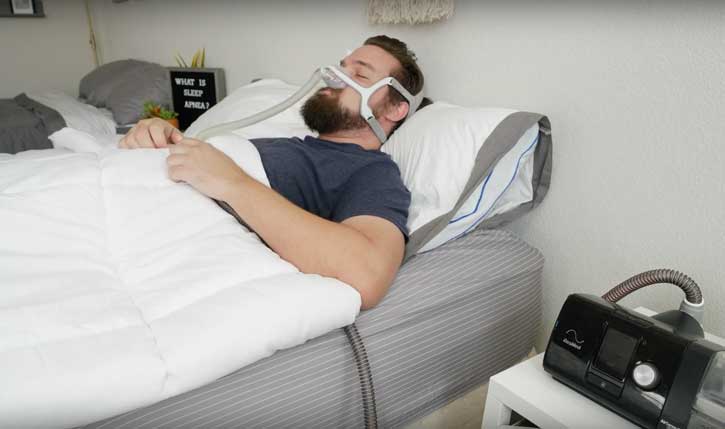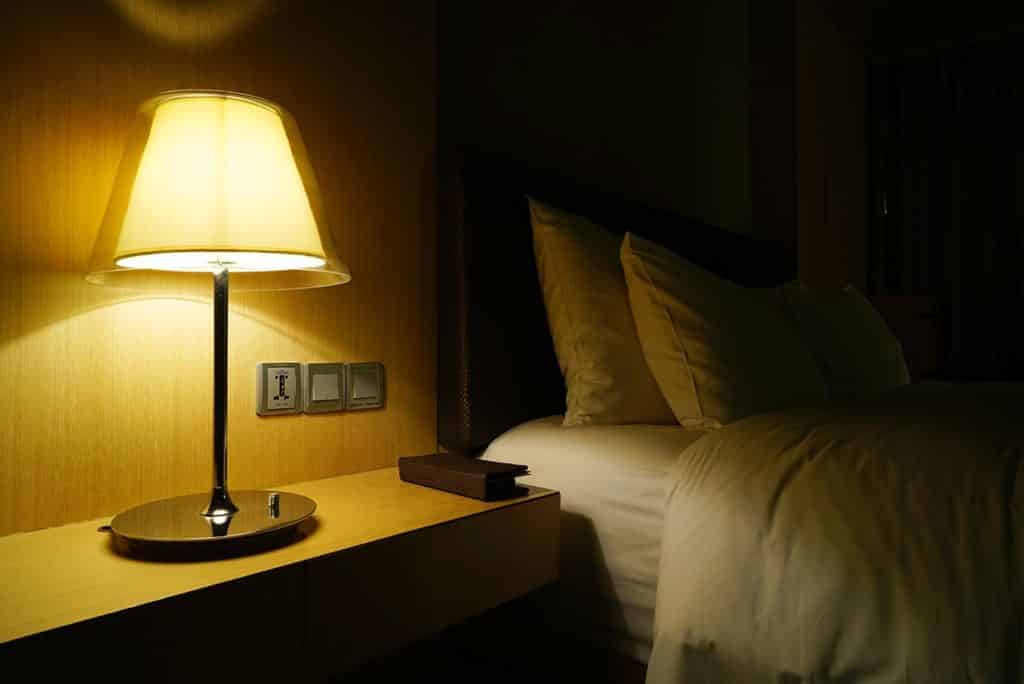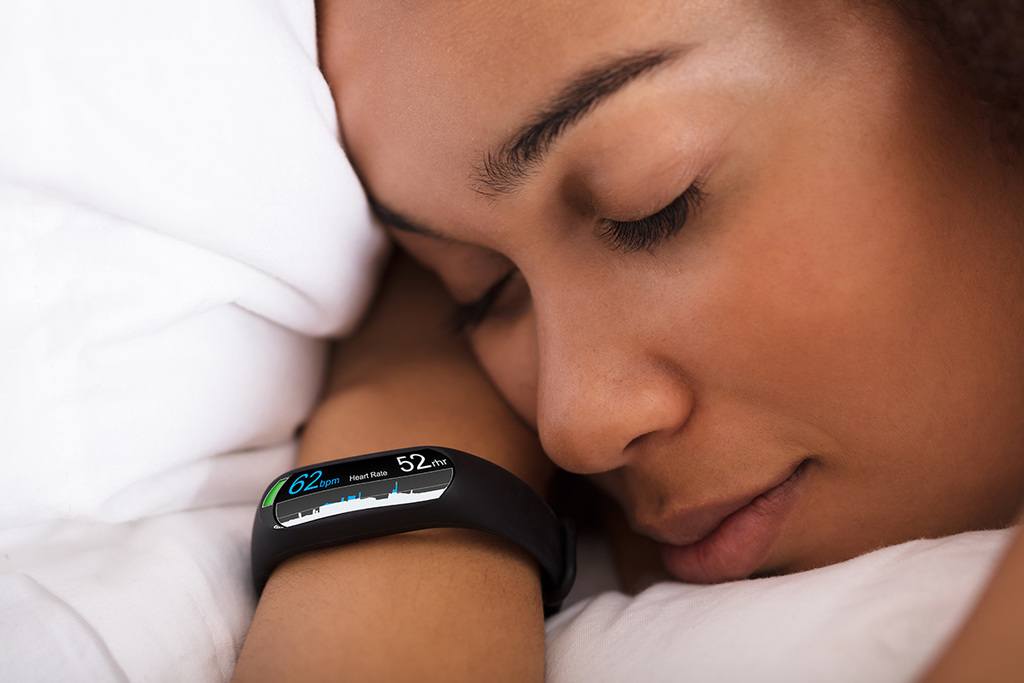If you track your heart rate with a wearable device, you probably notice that your heart rate changes throughout the day. It may be higher when you’re exercising, and lower when you’re relaxing. When you’re sleeping, your heart rate is actually at its lowest point of the day.
The question is, how low should your heart rate be while you’re asleep, and what is a good resting heart rate while sleeping? Keep reading for everything there is to know about what factors affect heart rate while sleeping and how to maintain a good sleeping heart rate.
Understanding Heart Rate
Your heart rate, or your pulse, is the number of times your heart beats per minute. A person’s heart rate can change minute-by-minute, or from one activity to another. In fact, normal heart rate looks different from person to person, and we’ll explain why shortly.
You can find your pulse on four main areas of the body: your wrist, inside of your elbow, the side of your neck and the top of your foot. The most accurate way to read your heart rate is to put your finger over your pulse and count the number of beats in 60 seconds, but there are other ways to track your heart rate, especially while you sleep (more on that soon as well).
Here are typical ranges for resting heart rate and sleeping heart rate.

Resting Heart Rate
Your resting heart rate is the lowest amount of blood you need pumped by your heart when you’re not exercising. The best way to gauge your resting heart rate is when you’re calm, relaxed and aren’t ill, or when you’re sitting or lying down.
For most people, a resting heart rate is typically between 60 and 100 BPM (beats per minute). This is a wide range that can be influenced by a number of factors, including:
- Air temperature. Your heart pumps more blood when it’s hot and humid out, which can increase your pulse by five to 10 beats per minute.
- Body position. Your pulse can temporarily jump after standing from a resting or sitting position, but should go back down after a couple of minutes.
- Emotions. If you’ve ever felt like your heart is beating faster when you’re stressed, anxious, very happy or sad, you’re not alone. Strong emotions can increase your pulse.
- Body size. While body size doesn’t play a major role in pulse, very obese individuals could see a higher resting pulse than normal.
- Medication use. Some groups of medication can raise or lower your pulse. Beta blockers, for example, block your adrenaline and tend to slow your heart rate. A high dose of thyroid medication, on the other hand, could increase your heart rate.
Sleeping Heart Rate
There’s a good chance you may not know when your heart rate is at its lowest point of the day because your heart rate is the slowest while you’re asleep. A normal sleeping heart rate can range from 40 to 60 BPM, but some studies have found a slightly wider normal range of 36 to 65 BPM.
According to Harvard Health Publishing, the reason why your heart rate decreases while you sleep is because the stimulation of your nervous system is reduced, which in turn causes your body processes to slow down.
About five minutes after you fall asleep, your heart rate gradually slows to its resting rate during a phase of sleep known as “light sleep.” You’ll typically spend half of the night in light sleep.
Then, during deep sleep, your heart rate slows to a rate that’s 20% to 30% below your resting heart rate as your blood pressure decreases. When you’re in REM sleep, or the phase of sleep where you dream, your heart rate can vary depending on what you’re dreaming about.
What Can Affect Heart Rate While Sleeping?
Like your resting heart rate, a “normal” sleeping heart rate can look different from person to person. These factors may contribute to a higher or lower sleeping heart rate.
Age
As you age, your heart rate gradually slows. Depending on how old you are, you could see your sleeping heart rate fall on the higher or lower end of normal (or even slightly outside of it). Older individuals, for example, tend to have a lower resting heart rate and sleeping heart rate.
Fitness Level
Exercise can have a tremendous impact on sleep, going as far lowering both your resting and sleeping heart rate. It’s not uncommon for very active people or athletes to have a lower heart rate, sometimes as low as 40 BPM, because their heart muscle doesn’t have to work as hard.
Sleep Disorders

Some sleep disorders, like sleep apnea, can affect your sleeping heart rate. Sleep apnea can cause bradycardia, which is a slower-than-normal heart rate.
Bradycardia usually isn’t a medical emergency, but you should always speak to a healthcare provider if a low sleeping heart rate is accompanied by other symptoms such as:
- Low energy
- Chest pain
- Confusion or memory problems
- Dizziness
- Heart palpitations
Insomnia and abrupt awakenings can also elevate your heart rate. Older adults in particular who experience nightmares may also experience an irregular heart rate, according to a 2003 study.
Tips for Maintaining a Good Sleeping Heart Rate
There are a few steps you can take to maintain a good sleeping heart rate. Try these strategies to keep your sleeping heart rate at an optimum level.
Optimize Your Sleep Environment
While creating the perfect sleep environment may not directly change your heart rate, it can help you sleep better, which can lower your heart rate if poor sleep has your heart working harder than normal.
Most experts agree that a good sleep environment should be cool, dark and comfortable. Experts agree that 65 degrees is the ideal temperature for sleep, but anywhere between 60 and 67 degrees is a sweet spot to aim for. If your room is too hot, you can also consider using a ceiling or floor fan, or investing in cool, breathable bedding like cotton.
A dark room signals to your brain and body that it’s time for rest by stimulating the production of melatonin, the hormone that helps you fall asleep. If light pollution is interfering with your sleep, you can invest in blackout shades or even wear an eye mask to keep light out of your eyes. If noise is an issue, a fan, white noise machine or ear plugs may make your bedroom quieter.

Maintain a Healthy Lifestyle
Your lifestyle, including diet and exercise, can promote better rest and a good sleeping heart rate. While exercise can lower your heart rate overall, it can also alleviate sleep disorders like insomnia and improve your sleep quality, or how well you sleep.
Diet makes a major impact as well. Certain foods and drinks can promote or disrupt rest, so making it a point to eat a nutritious, balanced diet may help you get more shuteye.
Reduce Stress
Stress and anxiety are two of the biggest precursors to insomnia and struggling to fall or stay asleep. As we’ve already learned, insomnia and poor sleep in general can lead to elevated heart rates, so keeping your stress levels low can help improve both your sleep and heart rate.
Yoga, meditation, deep breathing and taking a warm bath before bed are all effective ways to reduce stress—and relax your mind and body as you get ready to wind down for sleep.
How to Monitor Heart Rate While Sleeping
Luckily for us, modern technology takes the guesswork out of tracking your heart rate. Whether your goal is to simply keep an eye on your heart rate or identify a potential sleep disorder, there are several ways to monitor your heart rate while sleeping. Here are three of the most common:
Wearable Devices
Wearable devices like sleep trackers are one of the easiest and most convenient ways to get a sense of your sleeping heart rate. You’re probably familiar with some of the most popular, like Apple Watches or Fitbits, but wearable devices come in several forms that also include rings.
Since the majority of wearable devices sit on your wrist just over your pulse, they’re able to get a fairly accurate reading of your heart rate and how it rises and falls during sleep. They almost always come with a smartphone app or other platform where you can read your data in detail.

Smartphone Apps
If wearing a wearable device to bed sounds uncomfortable or just isn’t right for you, there are a handful of smartphone apps such as BetterSleep that can track your sleep without a watch or ring. BetterSleep, for instance, comes with a sleep recorder that’s trained to recognize different sounds associated with sleep, which are then analyzed into a report.
Other smartphone apps can detect snoring and make predictions about your heart rate, but chances are they may not be as accurate as wearing a wearable device since heart rate varies from person to person.
Professional Sleep Studies
If you have concerns about sleep apnea, insomnia or another sleep disorder, a professional sleep study can get to the root of the problem. While a sleep study will be the most accurate reading of your sleep patterns, including your sleep heart rate, they aren’t always easy to do.
Sleep studies are typically covered by health insurance if determined to be medically necessary, but you can expect to pay a copay or sizable portion if your deductible hasn’t been met. It also requires sleeping onsite at a sleep study center and being hooked up to wires, which could induce anxiety in some individuals.
Still, they can be a great way to learn about sleep disorders, but aren’t always the first (or even second) step physicians will recommend for addressing sleep problems. If you have concerns about your sleep heart rate or heart rate in general, be sure to speak to a healthcare professional.
FAQs
Is 40 BPM too low while sleeping?
Your heart rate typically slows to 40 to 60 BPM (beats per minute) while sleeping. This is common for many people while they sleep, and athletes, healthy young adults and very active individuals may even see a resting heartbeat in this range during waking hours.
Does low heart rate make you tired?
A low heart rate as a result of an underlying health condition can cause lack of energy, which can make you feel tired. If you experience a slow heart rate paired with fatigue, chest pains, confusion or memory problems, dizziness or heart palpitations, it’s a good idea to speak to a health care provider to develop a treatment plan.
What is an unsafe sleeping heart rate?
A heart rate that is too slow or too fast may be dangerous while sleeping if the symptoms noted above are present. For example, if your resting heart rate is consistently above 100 BPM, or around 40 BPM if you’re not an athlete, then you may want to speak to a healthcare provider to rule out any potential underlying conditions.

